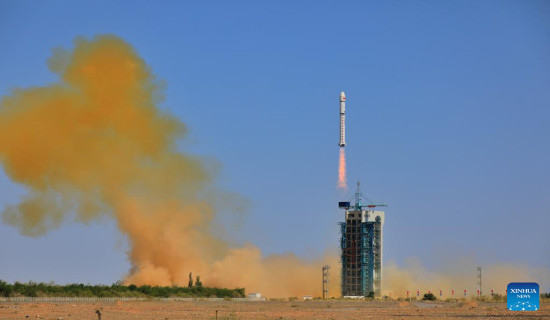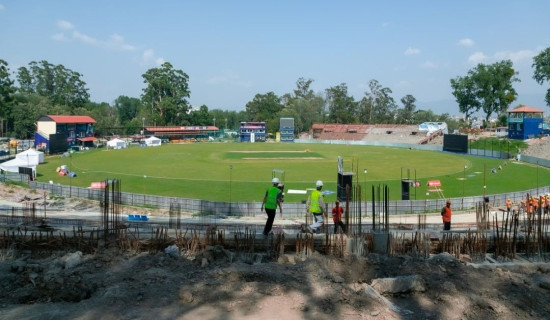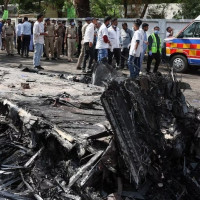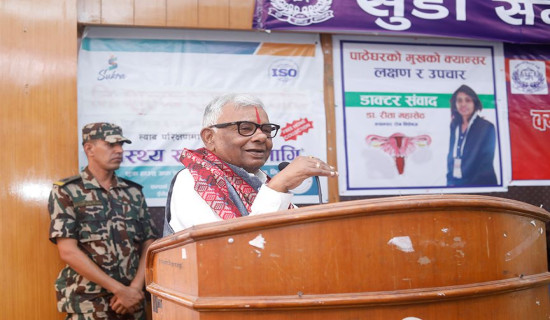- Saturday, 14 June 2025
Changing Global Order
The international system is currently changing at a rapid pace. We now see conflicts, growing nationalist sentiments and a multipolar world. This demands a deeper introspection and institutional reforms to better cope with such a change and its subsequent unfavourable outcomes. Post World War II, the United Nations (UN) was established to promote international cooperation and understanding on the global stage. However, with the passing of time, competitions and conflicts have grown significantly.
Globally, few news headlines remain at the top. The Russia-Ukraine and Israel-Hamas wars have stretched to a dangerous duration, causing unprecedented damage. In the South Asian region, a recent terrorist attack on tourists visiting Pahalgam in Jammu and Kashmir has become a serious security risk between India and Pakistan. In the attack, as many as 26 travellers, including a Nepali national, lost their lives. The unfortunate incident has been condemned worldwide.
In the current context, human rights have been violated to a massive extent. Genocide, sexual violence, mass killing, excessive use of arms, and extremism remain evident. The global community today lacks empathy, ethics, and morality in its conduct of international relations. The constant locking of horns has created only disruptions. Likewise, the globalisation-induced cooperation and interdependence have taken a back seat to the fervour of nationalism, leading to trade wars. While trying to take matters into their own hands, countries are now forced to face the ‘withdrawal symptoms’. There is an imbalance, affecting individuals and businesses on a large scale.
Another change is the emergence of multipolarity. Besides the United States and European countries, strong players like China and Russia have planted their flags. Similarly, there are middle powers like Turkey and South Korea. This situation has made the world less unified, posing challenges to cooperation, sovereignty and territorial integrity. International relations today are no longer limited to the presence of state actors; rather, non-state actors are found influencing the international system as well.
Most importantly, the world is now forced to tackle growing transnational challenges of climate change, terrorism, data insecurity and armament on a large scale. While the rules-based international order is essential to bring predictability in international relations and foster cooperation in tackling the challenges, we seem to be losing touch with it. We are struggling to achieve ambitious goals like the Sustainable Development Goals (SDGS) and the Paris Agreement.
All of these point to the need to make reforms in the existing structures. Multilateral institutions like the UN should be effectively reformed, assuring representation from diverse parts of the world. Its role should not be limited to condemnation, but rather should emerge as a resourceful, key player in managing any kind of threat that remains ahead of us. The global rules of globalisation should be made fairer, addressing the discontent presented by countries concerning unemployment and inequality.
Matters of human rights and social justice can only be protected and promoted through rigorous pressure from the international community. The same applies to the prolonged wars and conflicts. The international relations today should move towards finding sustainable solutions, demanding solidarity between member countries. The global community should now concentrate their efforts on preventive diplomacy and on fostering goodwill through meaningful dialogues. We still have the opportunity to make this world a peaceful and better place to live in, for both the present and future generations.




-square-thumb.jpg)
-square-thumb.jpg)

-square-thumb.jpg)




-original-thumb.jpg)




